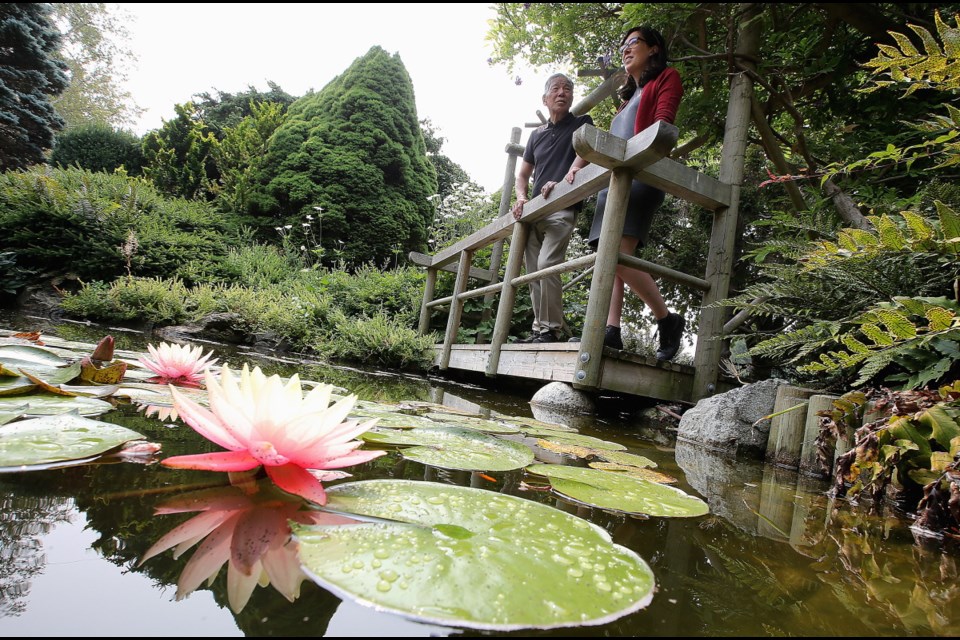The Township of Esquimalt is being presented with an opportunity to right a historical wrong and create something new to serve the present.
Historical researchers and a Japanese cultural association are hoping the municipality will agree to rebuild a Japanese teahouse in Gorge Park on the same spot occupied by one looted and destroyed during the Second World War. But they also want to see a community centre to benefit all park users.
“To some extent, you could say this would be some righting of a historical wrong,” said Tsugio Kurushima, president of the Victoria Nikkei Cultural Society. “But we also want to promote something that would be useful for the whole community.”
Kurushima is spearheading a move to persuade Esquimalt to rebuild the teahouse using a portion of the $17 million it has received as compensation for taking on the regional sewage treatment plant now under construction at McLoughlin Point.
He would like to see a facility to recreate the original teahouse, offer snacks and drinks for park users, and provide other space for activities such as meetings or social events.
“The teahouse could be part of a multi-purpose structure that could be used by the whole community,” said Kurushima.
“It could address two birds with one stone,” he said. “It would right a wrong that took place in the Second World War and build an amenity that would improve the park.”
Assisting with research work and commemoration of the original teahouse is a federally funded, national project called Landscapes of Injustice.
Kaitlin Findlay, research co-ordinator and historian at the University of Victoria, said the original teahouse dated back to 1907. A traditional Japanese garden, the first to be created in Canada, was built alongside it in the 1920s.
Findlay said brothers Hayato and Kensuke Takata, who arrived in Victoria in their teens, owned the teahouse and made it a prominent part of Victoria’s social scene. Beyond the traditional teahouse, it also included a dance hall, a dining room, a games area and merry-go-round.
But in 1942, the Canadian government began uprooting Japanese Canadians from the West Coast and sending them to internment and work camps in the Interior or the Prairies. An exclusion zone along the coast was enacted.
Victoria, with a small Japanese Canadian community of 270 to 300, was no exception. The Takata family was uprooted and their teahouse left in the care of the federal office of the custodian.
Findlay said soon after the Takatas were gone, the people of Victoria descended upon the teahouse to steal anything of value, from furniture to plants in the garden. They even took light fixtures and stripped wiring from the walls. What was left, vandals smashed.
Findlay said government records of what was happening to the teahouse make for grim reading, a steady record of ongoing looting and destruction.
“There was the theft, so people took away what they could,” she said. “But the destruction seems almost mindless.”
“You just get a sense of this racism at work and all this anger expressed against the teahouse,” said Findlay.
After the war, the Canadian government refused to allow people of Japanese descent to return to the West Coast until 1949.
Findlay said the Takata family eventually moved to Toronto and started over.
“I guess they had no interest in returning to a place that had so betrayed them,” she said.
Until the end of September, the Township of Esquimalt is conducting an online survey to gather ideas on how to spend the McLoughlin Point Amenity Reserve Funds. Council has already decided $7 million should be spent improving parks and amenities.
Ideas, including the Japanese teahouse, have been collected and placed on an online ballot. To read more and vote, go online to esquimalt.ca and click on McLoughlin Amenity Funds.



